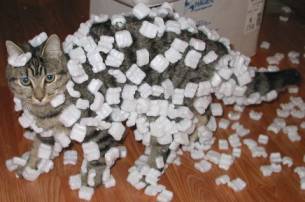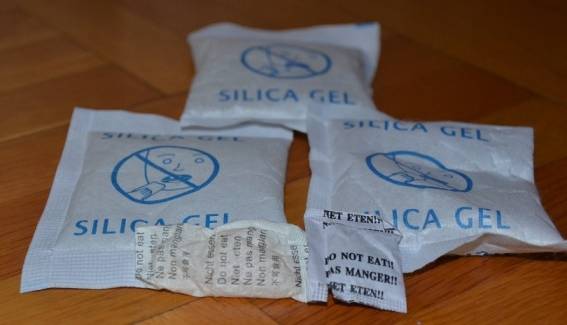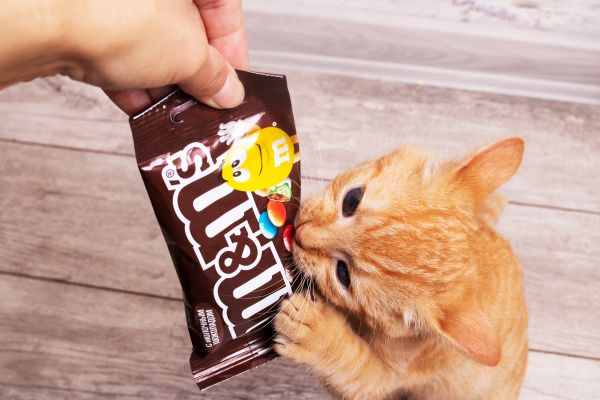Connect with a verified veterinarian in minutes. Licensed vets are available 24/7 to answer your questions. No need to worry about your furry family member.
A cat can make a plaything out of just about anything! While cats are very intelligent, they are also known for taking chances, being silly, and more. You may wonder about the intelligence of your cat if she happens to be playing with Styrofoam and then eats some of this material.
Has your cat eaten some Styrofoam? Are you worried the Styrofoam will make your cat sick? If so, then you’ve come to the right place.
In this article, we’ll take a look at Styrofoam and whether or not it can make your cat sick. Let’s get started!
What is Styrofoam?
To start with, Styrofoam is a trademarked brand, which is why the word is capitalized. The substance is actually a closed-cell extruded polystyrene foam (XPS), which is commonly referred to as “Blue Board.” While this is the case, many people still believe Styrofoam actually refers to a type of cup, plate, and food container. These items are not made with Styrofoam but with polystyrene foam (EPS), which is not extruded.
Cats love to play with polystyrene items. They love to chase it around the floor, bite & shred it into millions of pieces. Let’s face it, Styrofoam is fun to play with!
But is Styrofoam dangerous for cats? Can Styrofoam make a cat sick?
Styrofoam & Cats
The good news is that Styrofoam is not considered acutely toxic to cats. However, it can still make your cat sick. It is a good idea to get them checked out at your vets, as even though styrofoam is not thought to be toxic to cats, it is best to get liver and kidney function monitored to make sure no damage has been done to these important organs,
If your cat has eaten a very small piece of shredded Styrofoam, chances are she will be OK. However, you’ll need to monitor her for any symptoms that are listed in the next section below.
On the other hand, if your cat has eaten something like packing peanuts, they could lead to a problem called an intestinal blockage. This is a very serious condition, which can lead to death if not treated.

Review symptoms, medications & behavior to keep your pets healthy with a Vet Online in just minutes.
Ask a Vet Live NowSymptoms of an Intestinal Blockage in Cats
You may notice these symptoms if your cat has eaten Styrofoam packing peanuts or a large amount of another Styrofoam product:
- Vomiting
- Lack of appetite
- Weakness
- Lethargy
- Diarrhea
- Constipation
- Abdominal pain & swelling
- Crying/whimpering
- Unwilling to lie down
- Depression
- Shock
- Collapse
If your cat shows any of the symptoms on this list, then call the vet immediately. This is a medical emergency.
Treatment of an intestinal blockage usually requires emergency surgery. The surgery is done to safely remove the blockage and repair any damage it may have caused in the digestive tract.
Because this condition can kill, it’s crucial to call the vet at the first sign of an intestinal blockage in your cat. In most cases, cats who receive prompt medical treatment will make a complete recovery.
Connect with a verified veterinarian in minutes. Licensed vets are available 24/7 to answer your questions. No need to worry about your furry family member.

Emma Chandley, BVetMed MRCVS PGCertSAS
This article has been reviewed and approved by an independent Veterinarian: Emma graduated from the Royal Vet College in London in 2011. She has a keen interest in surgery and went on to do a post graduate certificate in small animal surgery and was then awarded advanced practitioner status in the same discipline.
Review symptoms, medications & behavior to keep your pets healthy with a Vet Online in just minutes.
Ask a Vet Live Now





